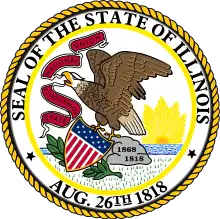1986 Illinois gubernatorial election
The 1986 Illinois gubernatorial election was held on November 4, 1986. Republican candidate James R. Thompson won a fourth term in office, defeating the Illinois Solidarity Party nominee, former United States Senator Adlai Stevenson III, by around 400,000 votes.
| |||||||||||||||||||||||||
| Turnout | 52.37% | ||||||||||||||||||||||||
|---|---|---|---|---|---|---|---|---|---|---|---|---|---|---|---|---|---|---|---|---|---|---|---|---|---|
| |||||||||||||||||||||||||
 County results Thompson: 40-50% 50-60% 60-70% 70-80% Stevenson: 40-50% 50-60% | |||||||||||||||||||||||||
| |||||||||||||||||||||||||
| Elections in Illinois |
|---|
 |
Stevenson, a Democrat, originally ran for and received that party's gubernatorial nomination. However, his preferred candidate lost the lieutenant gubernatorial nomination to Mark J. Fairchild in the primary (primaries for both major parties were held March 18, 1986[1]). When it came out after the primary that Fairchild was a member of the LaRouche movement, Stevenson dropped off of the Democratic gubernatorial ticket to avoid running with Fairchild. In Illinois, the governor and lieutenant governor are nominated in separate primaries, but run as a single ticket in the general election. Stevenson formed the third party Solidarity Party and ran as its candidate with Mark Howlett as his running mate. Virtually the entire Democratic establishment supported Stevenson's bid. The "official" Democratic ticket, ultimately running Fairchild on the ballot alone as a lieutenant gubernatorial nominee without a gubernatorial nominee atop the ticket, only just managed to surpass the 5% mark needed for the party to retain their major party status in Illinois after the election.
Election information
The primaries and general elections coincided with those for federal offices (Senate and House), as well as those for other state offices. The election was part of the 1986 Illinois elections.[1][2]
Democratic primary
The 1986 election was a rematch of the 1982 election, which had been narrowly won by Thompson over Adlai Stevenson III by about 5,000 votes out of over 3.5 million votes cast. However, Stevenson's efforts were largely derailed in the primary when the candidates he supported for Lieutenant Governor (George Sangmeister) and Secretary of State (Aurelia Pucinski) were both upset by Mark J. Fairchild and Janice Hart. While not heavily publicized during the primaries, Fairchild and Hart were followers of the controversial Lyndon LaRouche. When this became public knowledge after the primaries, Stevenson was forced to abandon his Democratic Party nomination and run as a third-party candidate. As of 2023, this remains the last time a third party candidate finished in the top two in the Illinois governor's race.[3]
Stevenson made it clear right after learning his running mate was to be a LaRouche supporter that he would "never run on a ticket with candidates who espouse the hate-filled folly of Lyndon LaRouche".[4]
Governor
Adlai Stevenson III, former United States Senator and 1982 gubernatorial nominee, defeated Larry Burgess in the Democratic primary.
Originally Neil Hartigan had declared himself a candidate for governor, but after Stevenson's entrance into the race, he instead opted to run for reelection as Illinois Attorney General.[5][6]
| Party | Candidate | Votes | % | |
|---|---|---|---|---|
| Democratic | Adlai E. Stevenson | 735,249 | 92.93 | |
| Democratic | Larry Burgess | 55,930 | 7.07 | |
| Write-in | Others | 1 | 0.00 | |
| Total votes | 791,180 | 100 | ||
Lieutenant governor
| Party | Candidate | Votes | % | |
|---|---|---|---|---|
| Democratic | Mark J. Fairchild | 340,727 | 51.75 | |
| Democratic | George E. Sangmeister | 317,700 | 48.25 | |
| Write-in | Others | 4 | 0.00 | |
| Total votes | 658,431 | 100 | ||
Republican primary
Governor
Incumbent James R. Thompson defeated his sole challenger, Peter Bowen.
| Party | Candidate | Votes | % | |
|---|---|---|---|---|
| Republican | James R. Thompson (incumbent) | 452,685 | 90.90 | |
| Republican | Peter Bowen | 45,236 | 9.08 | |
| Write-in | Others | 61 | 0.01 | |
| Total votes | 497,982 | 100 | ||
Lieutenant governor
Incumbent George Ryan won the Republican primary for lieutenant governor, running unopposed.
| Party | Candidate | Votes | % | |
|---|---|---|---|---|
| Republican | George Ryan (incumbent) | 441,672 | 100 | |
| Write-in | Others | 7 | 0.00 | |
| Total votes | 441,679 | 100 | ||
Third-party nominations
Adlai Stevenson III's newly-formed Illinois Solidarity Party nominated him for governor. Mike Howlett, an associate judge on the Cook County Circuit Court and son of former Illinois Secretary of State Michael Howlett, was nominated for lieutenant governor. Stevenson opted to avoid having his ticket spoiling the performance of non-LaRouche affiliated Democratic nominees for statewide office by having political unknowns nominated on his Solidarity slate for all offices except lieutenant governor and secretary of state.[7]
The Libertarian Party nominated Gary L. Shilts for governor and Gerry Walsh for lieutenant governor.[8]
The Socialist Workers Party nominated Diane Roling for governor and Jim Little for lieutenant governor.[8]
Chicago Mayor Harold Washington, a strong supporter of Stevenson's candidacy, worked to combat an attempt by a Black activist to collect signatures for a third-party slate of Black candidates for statewide office, which was seen as likely to threaten Stevenson in a general election by dividing the Black vote.[7]
General election
Thompson's reelection campaign received the backing of incumbent Republican president Ronald Reagan.[7]
| Party | Candidate | Votes | % | ±% | |
|---|---|---|---|---|---|
| Republican | James R. Thompson (incumbent)/ George Ryan (incumbent) | 1,655,849 | 52.67 | +3.23 | |
| Illinois Solidarity | Adlai Stevenson III/ Mike Howlett | 1,256,626 | 39.97 | N/A | |
| Democratic | No candidate/ Mark Fairchild | 208,830 | 6.64 | -42.66 | |
| Libertarian | Gary L. Shilts/ Gerry Walsh | 15,646 | 0.50 | -0.16 | |
| Socialist Workers | Diane Roling/ Jim Little | 6,843 | 0.22 | +0.22 | |
| Write-in | Charles E. Koen | 141 | 0.01 | N/A | |
| Write-in | Wilbur L. Keeling | 30 | 0.00 | N/A | |
| Write-in | David L. Bernabie | 13 | 0.00 | N/A | |
| Majority | 399,223 | 12.70 | |||
| Turnout | 3,143,978 | 52.37 | |||
| Republican hold | Swing | ||||
References
- "OFFICIAL VOTE Cast at the PRIMARY ELECTION GENERAL PRIMARY, MARCH 18, 1986" (PDF). www.elections.il.gov. Illinois Secretary of State. Retrieved April 10, 2020.
- "OFFICIAL VOTE Cast at the GENERAL ELECTION NOVEMBER 4, 1986" (PDF). www.elections.il.gov. Illinois State Board of Elections. Archived (PDF) from the original on June 2, 2022. Retrieved April 10, 2020.
- Malcolm, Andrew H. (March 20, 1986), "2 CONSERVATIVE EXTREMISTS UPSET DEMOCRATS IN THE ILLINOIS PRIMARY", New York Times, pp. A18, retrieved November 9, 2016,
However, politicians here suggested other reasons: an unusually low turnout of about 25 percent of the 6.1 million registered voters and the relatively unfamiliar names of Mr. Stevenson's candidates, George Sangmeister for Lieutenant Governor and Aurelia Pucinski for Secretary of State. The LaRouche victors were Mark J. Fairchild for Lieutenant Governor and Janice Hart for Secretary of State.
- Kraft, Scott; Greem, Larry (March 20, 1986), "Two LaRouche Illinois Victories Stun Democrats", L.A. Times, retrieved November 9, 2016,
At a packed news conference Wednesday night, Stevenson declared: "I will never run on a ticket with candidates who espouse the hate-filled folly of Lyndon LaRouche."
- Dold, R. Bruce (December 8, 1985). "RYAN FIGHTS HISTORY IN CAMPAIGN". chicagotribune.com. Chicago Tribune. Retrieved April 10, 2020.
- Dold, R. Bruce (October 30, 1986). "CAREY FIGHTS HARTIGAN'S LEAD IN ATTORNEY GENERAL CONTEST". chicagotribune.com. Chicago Tribune. Retrieved April 10, 2020.
- Gailey, Phil; Times, Special To the New York (August 12, 1986). "IN ILLINOIS, STEVENSON MAKES IT A RACE". The New York Times. Retrieved May 9, 2022.
- Egler, Daniel (July 31, 1986). "STEVENSON IN FILING LINE BEHIND MINOR PARTIES". chicagotribune.com. Chicago Tribune. Retrieved April 10, 2020.
.jpg.webp)
.jpg.webp)
